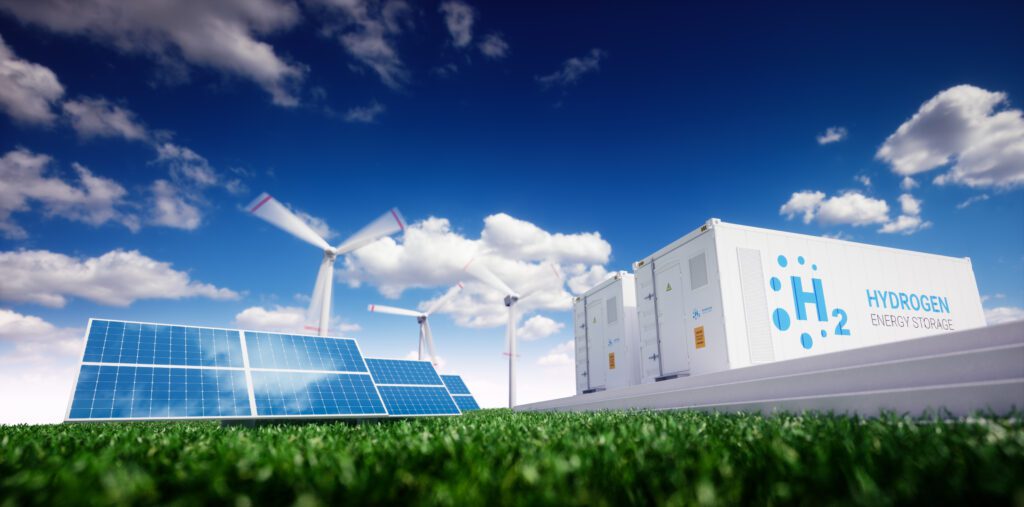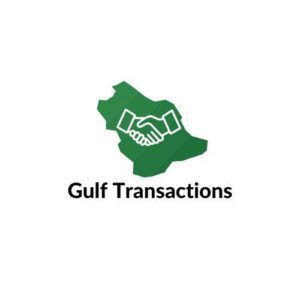Key Renewable Energy Solutions

In the heart of the Middle East, Gulf countries are embracing a sustainable future by actively fostering the growth of renewable energy. This green revolution presents a unique and compelling opportunity for international companies active in renewable energy to play a pivotal role in the Gulf’s energy transformation.
Renewable Energy Solutions in Gulf Countries
Renewable energy refers to energy obtained from natural sources that is constantly replenished faster than used. Examples of such sources include sunlight and wind, which are continuously renewed. These sources of renewable energy are abundant and widely available.
Gulf countries are witnessing a remarkable surge in the adoption of renewable energy. As the region diversifies its energy mix, statistics reveal a steady increase in renewable energy projects. This shift creates fertile ground for international companies looking to contribute to sustainable energy solutions.
Investment Opportunities
The Gulf region offers a vast and expanding scope for renewable energy infrastructure projects. From solar and wind farms to innovative bioenergy, the potential for profitability and attractive returns on investment make the Gulf’s renewable energy sector an appealing prospect for international companies.
Government Support and Incentives
Gulf countries’ governments actively seek foreign expertise to bolster their renewable energy ambitions. Favorable policies, including tax incentives and streamlined bureaucratic processes, create an environment conducive to international companies, inviting them to be key contributors to the region’s sustainable energy future.
Economic Stability and Growth
The economic stability of Gulf countries forms a solid foundation for the success of renewable energy projects. With robust economic growth, these nations ensure a stable market and demonstrate resilience to global economic fluctuations, providing international companies with a secure platform for sustainable business.
Strategic Location and Environmental Considerations
Gulf countries, strategically located with abundant sunlight and wind resources, provide an ideal setting for renewable energy projects. The region’s geographical advantage and commitment to environmental sustainability position it as a hub for innovative and eco-friendly energy solutions.
Funding Opportunities
Access to financial resources is paramount for renewable energy projects. Gulf countries offer various funding opportunities, and international companies can explore collaborations with local financial institutions to secure the necessary capital for their projects.
Networking and Partnerships
Building local networks is crucial to the success of international companies in the Gulf’s renewable energy sector. Collaborating with local businesses and forming partnerships facilitates market entry and ensures a deeper understanding of regional dynamics.
Renewable Energy Systems Suited for Gulf Countries
The Gulf region offers diverse renewable energy types suited to its environmental conditions. These include:
- Solar Energy: Abundant sunlight makes solar energy a prime candidate for the Gulf countries. Photovoltaic panels and solar thermal systems can harness the sun’s energy efficiently.
- Wind Energy: The region’s consistent wind patterns make wind energy a viable option. Wind farms can be established to generate clean and sustainable power.
- Geothermal Energy: Though less explored, the Gulf’s geological features can support geothermal energy projects for heating and electricity generation.
- Hydropower: Utilizing existing water resources, hydropower projects can provide renewable energy solutions in selected areas.
- Bioenergy is a form of renewable energy derived from recently living organic materials known as biomass. It can be used to produce transportation fuels, heat, electricity, and other products.
Suppose your company specializes in renewable energy and is considering entering the Gulf countries. In this case, Gulf Transactions is prepared to offer the support and guidance necessary for your success in this market. Contact us today to discuss your requirements.
Future Prospects
The future of renewable energy looks promising with continuous advancements in technology and research. Innovations such as smart grids and storage solutions enhance the efficient integration of renewables into existing power systems.
Emerging trends focus on enhancing the efficiency of renewable energy sources like solar panels through improved materials and design. Research areas include exploring new ways to store excess energy generated from renewables for later use during peak demand periods.
Challenges like intermittency, grid integration, and storage limitations prevent the widespread adoption of renewables. Overcoming these hurdles requires investment in infrastructure, policy support, and stakeholder collaboration to drive sustainable growth in the renewable energy sector.
Investment Trends
Global investment trends in renewable energy are rising as investors recognize this sector’s growth potential. In 2020 alone, global investment in renewable power capacity reached over $300 billion, highlighting the increasing interest in clean energy projects.
The impact of investment trends on the growth of renewable energy projects is significant. Increased funding allows for the development of large-scale projects, accelerating the deployment of renewable technologies and reducing reliance on fossil fuels.
Investors have ample opportunities in the expanding renewable energy market, ranging from investing in solar farms and wind turbines to supporting research and development of new clean technologies. The growing demand for clean energy presents a lucrative landscape for those investing sustainably.
Frequently Asked Questions?
What are the advantages of renewable energy?
Transitioning to renewable energy helps reduce carbon emissions, mitigate climate change, promote energy independence, create jobs in the clean energy sector, and ensure sustainable energy sources for future generations.
How can geothermal energy be utilized as a renewable energy source?
Geothermal energy can be harnessed through power plants that convert heat from beneath the Earth’s surface into electricity. It is a reliable and sustainable source of power with minimal environmental impact.
What challenges are faced in adopting renewable energy technology?
Adopting renewable energy poses challenges, including high initial costs, intermittency issues with certain sources like solar and wind, grid integration complexities, storage limitations, and policy and regulatory barriers that hinder widespread implementation.
Why is solar energy considered vital for Gulf countries?
Solar energy is considered a crucial source in Gulf countries due to its abundance in the region. It helps reduce dependence on fossil fuels, minimizes electricity expenses in the long run, requires minimal maintenance costs, and contributes to creating a cleaner environment by reducing the release of greenhouse gases.
What does the future hold for renewable energy development?
The future of renewable energy looks promising, with advancements in technology driving down costs, increased efficiency of solar panels and wind turbines, innovations in storage solutions like batteries, and growing global awareness about the importance of transitioning to sustainable energy sources.
